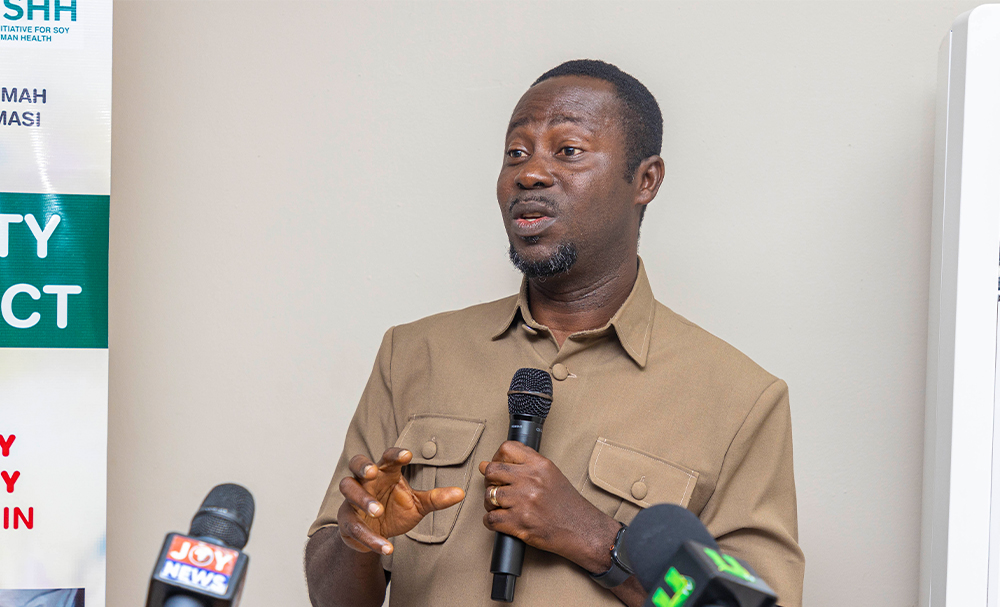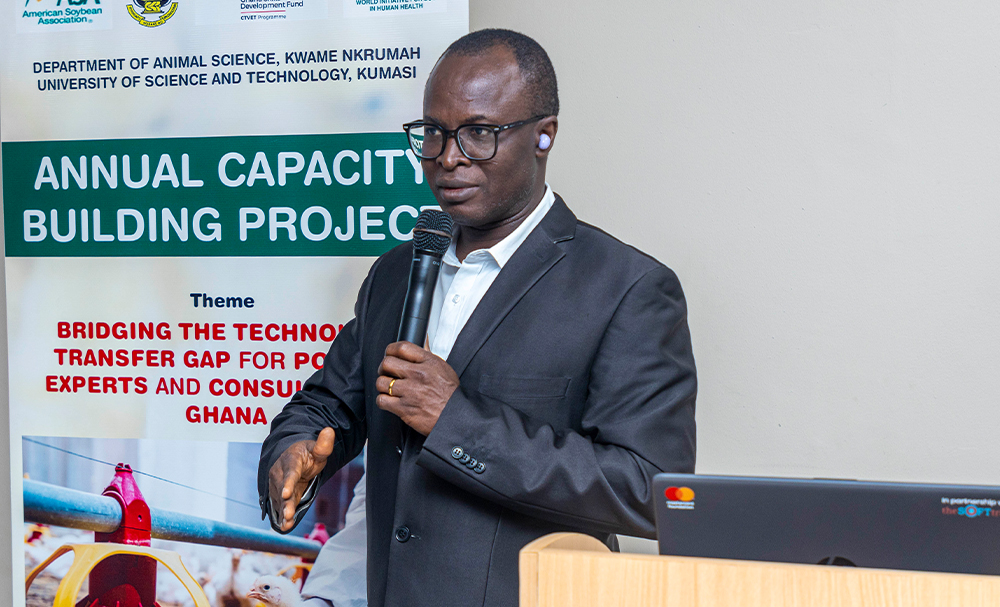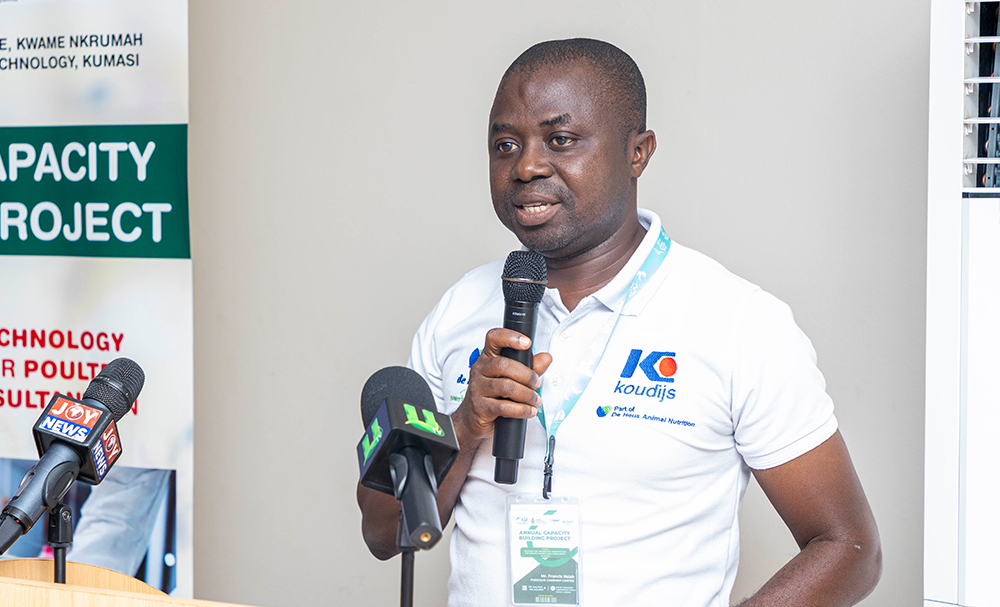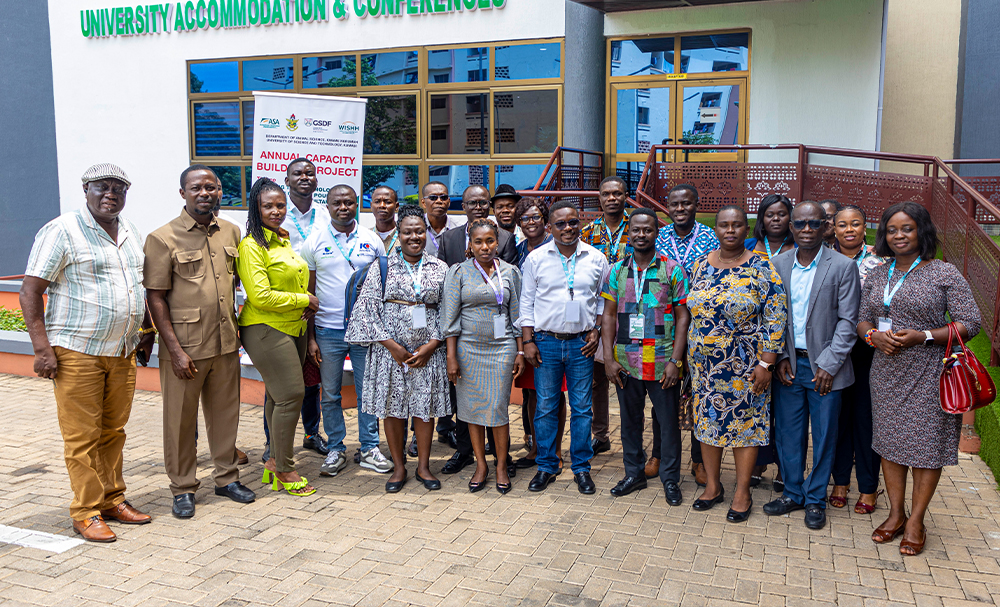The Department of Animal Science at the Kwame Nkrumah University of Science and Technology (KNUST), Kumasi has called for stronger regulatory frameworks in Ghana’s poultry sector.

Professor Kwaku Adomako, Head of the Department, said the move would safeguard investments and protect public health.
He urged stakeholders including academia, poultry associations, the Ghana Standards Authority, and the Ministry of Food and Agriculture to push for regulatory reform and long-term investment in breeding and production.
"It may be good for the government to bring a regulatory system that will help sanitize the poultry sector," Adomako said. "In fact, it's very important that we do so because it borders on biosecurity and public health.”
Prof. Adomako made the call during the department’s annual capacity-building program, which brought together poultry farmers, consultants, and agribusiness professionals for a week-long training.
The programme aimed to bridge the technology transfer gap for poultry experts and consultants in Ghana. He said Ghana’s agricultural policy has long focused on crop production, leaving livestock and poultry underdeveloped.
"Improving animal production is not only necessary for the economy, but also for public health and nutrition,” he said.
He described the department as a regional leader in poultry science, actively supporting industry stakeholders through free training and technical assistance.
However, he noted that collaboration between universities and the government remains limited compared to other institutions like the Ministry of Food and Agriculture and the Council for Scientific and Industrial Research.
“We need to find innovative ways to get involved with both industry and government,” Prof. Adomako said.
Speaking on breed selection for the tropics, he said Ghana has yet to establish domestic poultry breeding companies due to high capital costs and limited private investment.
He stressed that breeding is typically driven by private companies globally and requires a strong international sales network to be profitable. “Investment is needed for further research and commercialization,” he said.

Additionally, Professor Jacob Alhassan Hamidu, an animal scientist and associate professor at the Department, advised participants on the importance of determining egg quality and fertility before collection and hatching.
He said that not all eggs are suitable for hatching, but identifying fertile and high-quality eggs at the outset improves hatchability rates and overall poultry performance.
‘‘This is a critical step that many farmers overlook, but it can make all the difference in production success,” he added.

Mr. Francis Nsiah, Vice Chairman of the Poultry Farmers Association Western Region, described the training as impactful.
“We didn’t know how important it is to monitor housing temperatures when setting up poultry farms,” he said.
“This training has been very beneficial. We’ve learnt practical lessons that will help us grow our businesses. Collaborating with the department will allow us to benefit from research that supports and improves our operations.”
The training was held in collaboration with the Ghana National Association of Poultry Farmers (GNAPF), American Soybean Association (ASA) and funded by the World Initiative for Soybean in Human Health (WISHH).

















